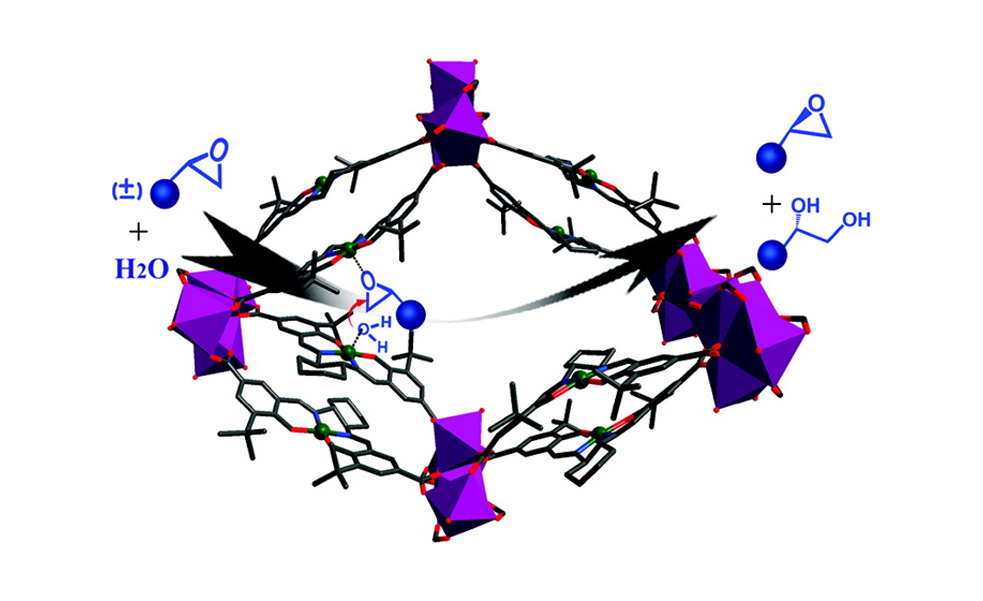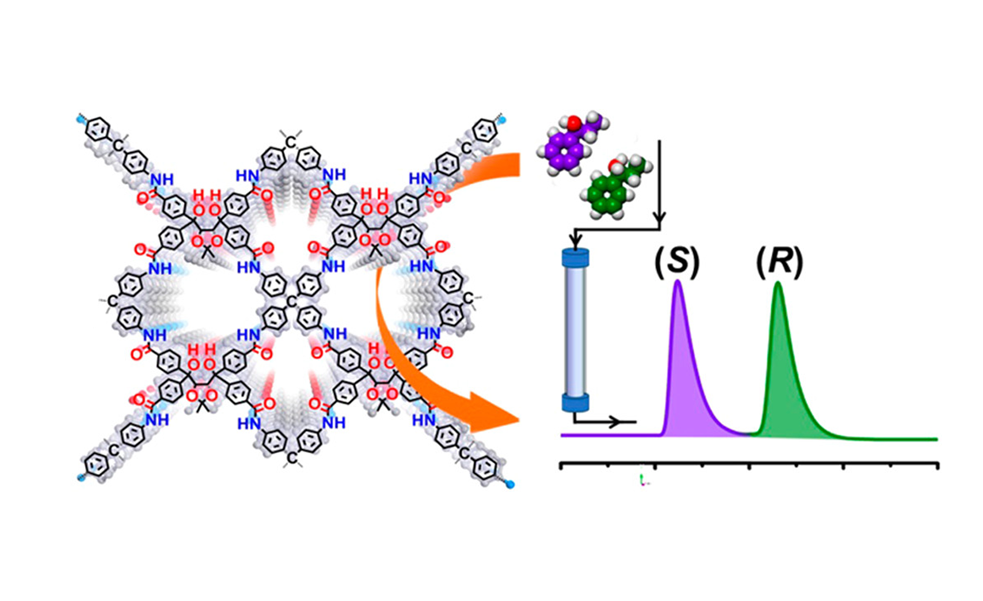Metal-Organic Frameworks (MOFs), as an emerging class of programmable porous crystalline materials, have attracted much attention owing to their fascinating structures and promising applications in diverse fields. Our group has long-term interests on the heterogenization of chiral molecular catalysts through CMOF strategy to overcome the constraints placedon traditional solid catalysts. Based on chiral privileged backbones (M(salen)/Biphenol/Spinol), we have designed and synthesized a series of chiral ligands. Self-assembly of them with different metal ions, various CMOFs with different topological structures and active sites were synthesized. These CMOFs can work as efficient heterogeneous catalysts to catalyze many asymmetric transformations, such as epoxidation/cynation/F-C /actalization/F-C reactions. They can alsobe used as chiral solid selectors to enantioselectively separate some racemic molecules and drugs, including alcohols/amines/sulfoxides. In addition, we have developed bottom-up heirachical assembly, ligand exchange, supermolecular building block and multivariate strategies to build CMOFs.

Due to their inherent porosity and structural periodicity, Covalent organic frameworks (COFs), especially chiral COFs (CCOFs) recently have been considered as competitive candidates for catalysis, sensor, optoelectronics, and energy storage, attracting widespread attention. However, it remains challenging to construct CCOFs, because of the discrepancy between asymmetry and crystallinity. We focus on the effective synthesis of CCOFs with novel structure and unique performances, taking the chiral legends as backbones. The performances of CCOFs in catalysis, separation properties were studied.

Chiral supramolecular frameworks offer a novel platform for diverse applications including separation, sensing, and catalysis in an enantio-selective manner. The inherent chiral confined microenvironment mimicking the binding pocket of enzymes always give rise to distinguished properties when compared with other porous materials. Our work deals with the preparation of inherently chiral metal-organic assemblies based on privileged organic ligands using a process refer to coordination assembly. Our central task is to figure out the host-guest interactions within the chiral confined cavities in solution and provide more information for the smart synthesis of novel functional materials.
